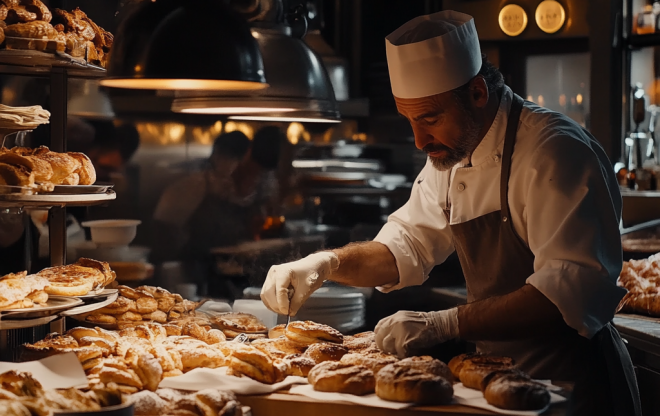Contextual French Conversation: Turning the World into Your Classroom
Fluency is rarely a matter of sheer vocabulary size; it is the ability to summon the right word at the precise moment when the barista asks what milk you prefer. The bridge between knowing and using is context—situations whose emotional stakes prod memory into action. To cross that bridge, treat daily life as an endless series of micro-missions conducted in French.
Begin with the simplest ritual you can control: ordering coffee. For one week, greet every barista, regardless of country, with “Bonjour, un cappuccino, lait d’avoine, merci.” Even when the reply comes in English, it persists. The repetition tattoos the opener into muscle memory. Next, transfer the same courage to a farmers’ market. Approach a vendor whose produce seduces your senses and inquire, “Ces tomates-là, elles viennent de quelle région?” Your nervous system acclimates to real-time negotiation as you discuss ripeness, seasonality, and price.
Now recruit an online language partner and follow the 10-10-10 formula: ten minutes of warm-up chat, ten minutes on a chosen topic (architecture, jazz, rugby—anything vivid), and ten minutes of mutual correction. Equal airtime ensures focus: neither speaker zones out, and both finish armed with a tidy list of hiccups to fix. Record sessions, replay them after a day’s distance, and note filler words that clog the flow. Deleting a habitual “euh” is as rewarding as mastering the subjunctive.
Once comfort builds, consciously elevate pressure through scenario rehearsal. Pretend you are buying a last-minute TGV ticket two minutes before departure, or requesting a midnight room after every budget hotel is full. Stress tests force you to haul verbs from long-term storage at lightning speed. One learner reported that after acting out a dozen nightmare travel vignettes, an actual strike at the Gare du Nord felt “almost fun” because she already had the phrases for alternative routes in her pocket.
A small notebook seals the learning loop. Immediately after each encounter—success or stumble—capture four lines: the emotion you felt, the phrase that landed well, the gap that tripped you, and the plan to fill that gap. Ten seconds of reflection multiplies retention because the brain stores experiences as stories, and stories need endings.
Grammar, so often segregated into textbook chapters, becomes both a challenge and a game when you designate a “structure of the week.” On Monday morning, you announce to yourself, “I will use the plus-que-parfait at least five times each day.” By Sunday, the tension has turned from a cerebral puzzle into a conversational reflex.
For pronunciation, trade long listening sessions for short, brutal sprints. Choose a twenty-second clip—news anchor, rap verse, movie insult—loop it, and shadow each syllable until your mouth tires. Five focused minutes every morning reshape accent faster than an hour of passive Netflix.
Finally, step into the community. Volunteer at a francophone film night, lead a crêpe fundraiser, or join a tournament. Genuine relationships evaporate performance anxiety: you forget you are “practicing French” and simply gossip about the weather, a spilled drink, or last night’s rugby score. In the end, that is the definition of fluency: when language is no longer an object but the invisible medium through which life flows.




